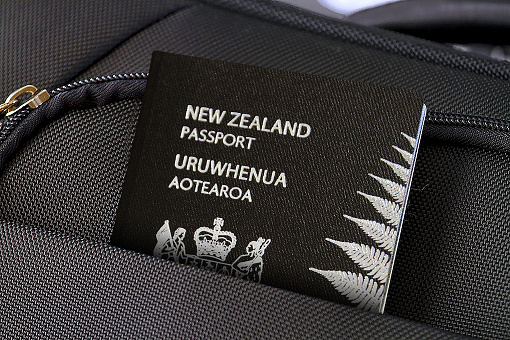Politics
New Zealand to Redesign Passport, Prioritizing English Text

New Zealand’s passport will undergo a redesign to place English text above te reo Māori, with the new format expected to be introduced by the end of 2027. This change, confirmed by Brooke van Velden, the Minister of Internal Affairs, marks a significant shift in the presentation of the passport, which has featured te reo Māori prominently since 2021.
Since that year, passports have included the phrase “Uruwhenua Aotearoa” in silver above the words “New Zealand Passport.” The upcoming redesign is part of a scheduled security upgrade, and the government assures that it will incur no additional costs for passport holders. Van Velden emphasized the decision to restore English as the primary language, stating it reflects the preference of the majority of the New Zealand populace.
The ACT Party, of which van Velden is the deputy leader, expressed support for this move on social media. They declared that the alteration would “restore English before te reo Māori – without costing taxpayers.” This sentiment aligns with the coalition government’s ongoing efforts to prioritize English in official communications.
Political Context and Reactions
The redesign is not only a matter of aesthetics but also part of a broader political strategy. The coalition agreement between New Zealand First and the National Party mandates that public service departments communicate predominantly in English, except for entities specifically devoted to Māori affairs. Additionally, there is a commitment to recognize English as an official language, a status te reo Māori has held since 1987.
The debate around the prominence of te reo Māori continues to evolve. During a recent session in Parliament, Winston Peters, leader of New Zealand First, objected to the use of the term “Aotearoa New Zealand,” asserting that it does not officially exist and that the country is recognized as “New Zealand” in all international documents, including those submitted to the United Nations.
Parliament Speaker Gerry Brownlee responded to Peters’ objections by highlighting that the New Zealand Geographic Board acknowledges the term “Aotearoa New Zealand.” He insisted that it would be unreasonable to prohibit its use, especially since the name appears on the country’s passports. Brownlee noted that Peters has previously presented passports with the term and did not raise concerns at that time.
Future Implications
This shift in the passport’s design illustrates a growing tension between the recognition of indigenous languages and the predominance of English in New Zealand’s official narrative. As the country navigates these discussions, the redesign of the passport will serve as a tangible representation of its evolving identity.
The Department of Internal Affairs is currently working on the details of the redesign, with the aim of unveiling the new passport design later this year. As New Zealand continues to balance its heritage with contemporary governance, the implications of these changes will resonate beyond the passport, influencing the nation’s broader cultural and linguistic landscape.
-

 World3 months ago
World3 months agoTest Your Knowledge: Take the Herald’s Afternoon Quiz Today
-

 Sports3 months ago
Sports3 months agoPM Faces Backlash from Fans During Netball Trophy Ceremony
-

 Lifestyle3 months ago
Lifestyle3 months agoDunedin Designers Win Top Award at Hokonui Fashion Event
-

 Sports3 months ago
Sports3 months agoLiam Lawson Launches New Era for Racing Bulls with Strong Start
-

 Lifestyle3 months ago
Lifestyle3 months agoDisney Fan Reveals Dress Code Tips for Park Visitors
-

 Health3 months ago
Health3 months agoWalking Faster Offers Major Health Benefits for Older Adults
-

 World3 months ago
World3 months agoCoalition Forms to Preserve Māori Wards in Hawke’s Bay
-

 Politics3 months ago
Politics3 months agoScots Rally with Humor and Music to Protest Trump’s Visit
-

 Top Stories3 months ago
Top Stories3 months agoUK and India Finalize Trade Deal to Boost Economic Ties
-

 Entertainment3 months ago
Entertainment3 months agoExperience the Excitement of ‘Chief of War’ in Oʻahu
-

 World3 months ago
World3 months agoHuntly Begins Water Pipe Flushing to Resolve Brown Water Issue
-

 Science3 months ago
Science3 months agoNew Interactive Map Reveals Wairarapa Valley’s Geological Secrets









